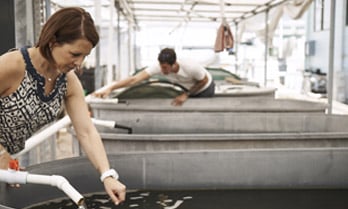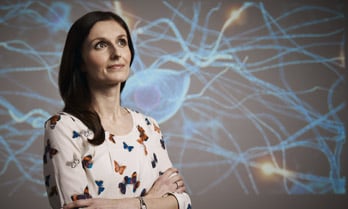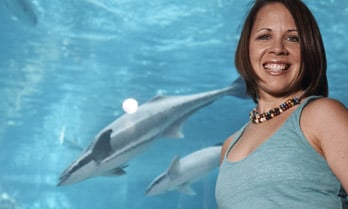2017 Fellow - Matire Harwood
11 January 2018
After the whirlwind of being awarded the For Women in Science Fellowship, we asked our 2017 Fellows a bit about their research and what it meant to be awarded the Fellowship.
Improving the health for indigenous communities

Matire is a medical researcher and clinician with the aim to address inequities that exist between indigenous and non-indigenous communities. Inequities within healthcare are detrimental not only to the community that suffers them but the nation as a whole, ultimately becoming a global issue.
Matire plans to review the effects of indigenous-led interventions for long term conditions. Her research suggests that indigenous-led interventions contribute to better outcomes for both indigenous people and also the nation
Part of your research is to develop novel approaches to health care issues for indigenous people, what might this include and what impact have you seen so far?
I work with indigenous communities and persons to create targeted approaches to health conditions. As a doctor treating indigenous people, I see first-hand the inequities in health and wellbeing between indigenous and non-indigenous people and my research aims to address this.
An example of my ‘research in action’ is in the area of stroke. Maori and Pacific people are much younger and more disabled after stroke. After investigating this further, I designed new rehabilitation therapies. We tested this in the community and had dramatic results – people were more mobile and happier, families were less stressed and overall there was less strain on health services. It was so successful it’s now being tested with all ethnicities around NZ. I’ll be taking a similar approach in other health issues common to indigenous people such as heart disease, diabetes and asthma. By doing so I believe we’ll see significant improvement in the health of indigenous people, to the benefit of all.
As an indigenous person, how important is it to you that we address these health inequities for indigenous people in both Australia and New Zealand?
As a Maori woman working in my own community and with indigenous peoples in other nations including Australia, I see first-hand the need to address the health inequities. But this is a global issue, experienced by the 400 million indigenous people around the world. The Lancet’s report on indigenous health in 2016 made sobering reading but also provided hope, recognising that achieving equity will not only transform people’s lives but have wider impact on families, communities, nations and the world over. This includes economic benefits. There is a lot we can learn from indigenous people in NZ and Australia – such as the holistic approach to health that includes caring for family, for the natural environment and addressing wider determinants. I want to thank the judging panel for not only bestowing me with this amazing fellowship, but for also seeing the value of indigenous knowledge and leadership in health science.



